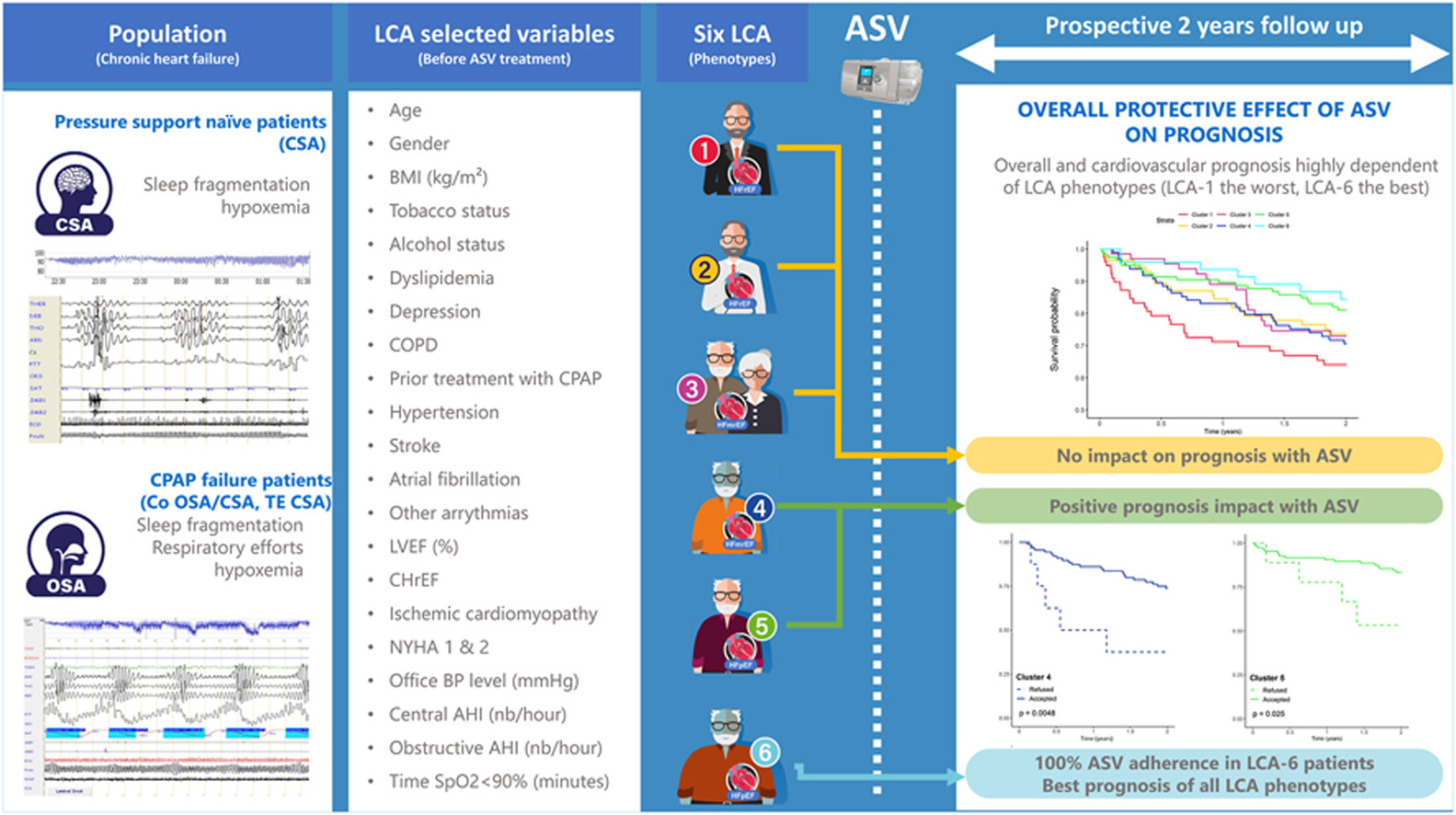Renaud Tamisier, Thibaud Damy, Sébastien Bailly, Frédéric Goutorbe, Jean-Marc Davy, Florent Lavergne, Alain Palot, Johan A Verbraecken, Marie-Pia d'Ortho, Jean-Louis Pépin; FACE investigators
- Share
- Share on Facebook
- Share on X
- Share on LinkedIn

Abstract
Background
Sleep-disordered breathing (SDB) is a common comorbidity in patients with heart failure (HF) and is associated with worse prognosis.
Objectives
This study evaluated the effects of adaptive servo-ventilation (ASV) on morbidity and mortality in a large heterogeneous population of HF patients with different etiologies/phenotypes.
Methods
Consecutive HF patients with predominant central sleep apnea (± obstructive sleep apnea) indicated for ASV were included; the control group included patients who refused or stopped ASV before three months follow-up. Six homogenous clusters were determined using the latent class analysis (LCA) method. The primary endpoint was time to composite first event (all-cause death, lifesaving cardiovascular intervention, or unplanned hospitalization for worsening of chronic HF).
Results
Of 503 patients at baseline, 324 underwent 2-year follow-up. Compared to control group, 2-year primary endpoint event-free survival was significantly greater in patients in ASV group only in univariable analysis (1.67, 95% [1.12–2.49]; p = 0.01). Secondary endpoints, event-free of cardiovascular death or heart failure-related hospitalization and all-cause death or all-cause hospitalization were positively impacted by ASV (univariate and multivariable analysis). LCA identified two groups, with preserved and mid-range left ventricular ejection fraction (LVEF) and severe hypoxia, in whom ASV increase prognosis benefit.
Conclusions
Patients with HF and SDB are a highly heterogeneous group identified using LCA. Systematic deep phenotyping is essential to ensure that ASV is prescribed to those benefit from therapy, as ASV use in patients with severe hypoxic burden and those with HFpEF was associated with a significant reduction in cardiovascular events and mortality.
- Share
- Share on Facebook
- Share on X
- Share on LinkedIn